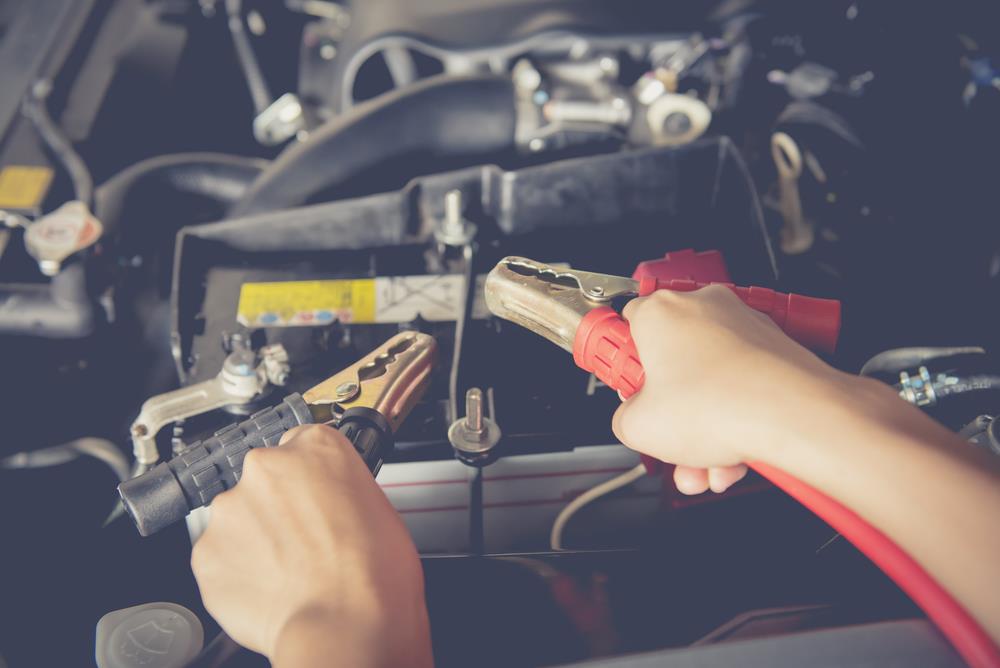Electrolyte
Electrolytes are a storehouse for lithium ions. They facilitate the diffusion of the ions between the electrodes (cathode and anode).The electrolyte for LIBs is a mixture of organic solvents and an electrolyte salt compound. The common solvents are a mixture of cyclic carbonate esters, such as ethylene carbonate and propylene carbonate, and linear carbonate esters, such as di-methyl carbonate and diethyl carbonate. The solution is completed with the addition of a salt compound such as LiPF6 or LiBF4.
Electrolyte solutions must enable the Li-ions to transport freely, which requires both high dielectric constant and low viscosity. Cyclic carbonate esters have a high dielectric constant but high viscosity, while linear carbonate esters have low viscosity but low dielectric constant. Suitable electrolyte solutions are therefore obtained by mixing the two. The electrolyte solution should ideally have a wide range of voltage stability window (0 to 5 V) with sufficient lithium-ion conductivity.
In this section

Electrolytes are usually a solution of lithium salts in a stable solvent (usually LiPF6). The salt stays in the form of dissociated ions in the solvent, which allows for the movement of these ions. The diffusion of ions helps maintain the electrical neutrality of the battery as a whole. Liquid electrolytes have become omnipresent and have been used as transport (and holding) materials for lithium ions since the inception of lithium-ion batteries. The major problems associated with electrolytes is their high flammability and slow diffusion. These can be ameliorated by using electrolytes based on solid-state materials having higher diffusivity and low flame susceptibility.
Research on the electrolyte solution is generally focused on one of three areas: functional electrolyte additives, flame-resistant or nonflammable electrolyte solutions, and new electrolyte salts.
Functional electrolyte additives are included in the electrolyte solution to improve battery performance. This concept has been around for some time, and the basic technology is well established. One early example is the addition of propane sultone to the non-aqueous electrolyte solution of a rechargeable battery using a metallic lithium anode.Although this technology was initially developed for metallic lithium batteries, the use of such additives for LIBs began around 1994. Since then a wide range of additives have been developed. So many different compounds have been used as additives that they are too numerous to mention, but notable examples include vinylene carbonate, propane sultone, phenyl-cyclohexane, and fluoro-ethylene carbonate. The selection of additives and determination of their appropriate formulations have become a key aspect of the proprietary know-how of each battery manufacturer, and the search for new additives continues apace.
Flame-resistant or nonflammable electrolyte solutions. The main approach is to employ phosphate compounds in some way, either by using cyclic phosphoric acid ester as a solvent or by adding a phosphazene compound as a flame retardant. The next most common approach is to use halogen compounds, especially fluorine compounds such as fluorocarbon ester and fluorinated ether, as solvent. There is also the concept of a new safety mechanism whereby a flame retardant is encased in microcapsules to be released in case of a battery malfunction.
Another area of research is new electrolyte salts to replace LiPF6, but there remain many challenges in terms of performance and cost. Notable examples include sulfonyl amides such as lithium bis (trifluoromethylsulfonyl) amide.
The global market for electrolytes for all applications of Li-ion batteries was slightly bigger than 62,000 tons in 2015 and the compound annual growth rate (CAGR) in 2005 to 2015 amounted to 20%. The market for electrolytes for HEV, PHEV and BEV batteries has experienced a rapid growth in the period from 2010 to 2015, with electrolyte demand for these applications increases from 200 tons to 20,500 tons. Worldwide there is currently a significant overcapacity for electrolyte production for Li-ion batteries. Less than half of the available production capacity is currently being utilized in Japan and Korea and in the US and Europe only 5% and 1%, respectively. Nevertheless, there may be opportunities in formulation and production of new advanced electrolytes, e.g. for high-voltage Li-ion cells, where advanced (likely fluorinated) additives and solvents will be required. The market for electrolytes is expected to grow from the current 62,000 tons to more than 235,000 tons in 2025, with the automotive share increasing from current 33% to 50% of the market.